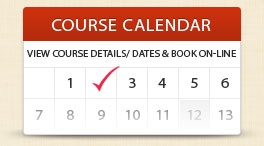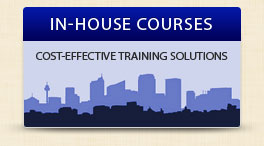 Measurement Uncertainty - Confidence in Measurement (Based on the Requirements of ISO/IEC 17025)
Measurement Uncertainty - Confidence in Measurement (Based on the Requirements of ISO/IEC 17025)
Overview
The validity of measurements made have little meaning unless the uncertainty of the test or calibration process is known. Many standards, including ISO/TS 16949 and ISO/IEC 17025, require that the uncertainty of measurement be taken into account when performing measurement activities. This workshop will acquaint delegates with the requirements of ISO/IEC 17025 and particularly the salient principles contained in ISO Guide 98-3 Guide to the expression of Uncertainty in Measurement and other guidance document M3003. Methodologies to calculate uncertainty budgets are defined as well as the basic statistics required. The course provides practical uncertainty exercises and all of the activities are supported with examples of typical uncertainty budgets, which are chosen to cover different fields of measurement.
ISO 17025 Course Objectives
This interactive and practical workshop is designed to provide delegates working in the field of measurement with the knowledge to develop uncertainty budgets to meet the requirements of ISO/IEC 17025 and laboratory accreditation bodies.
Key Skills / Learning Objectives
Through the combination of interactive tutorials and workshops, our course will enable the delegates to:
- Apply the methodologies for calculating uncertainty budgets using practical examples.
- Develop a structured uncertainty budget, with an awareness of the uncertainty contributions associated with a measurement system and how to evaluate the magnitude of these errors.
- Utilize the results of uncertainty budgets to determine cost and efficiency improvements in measurement systems.
ISO 17025 Course Outline
- The importance of uncertainty of measurement
- Basic concepts: traceability, uncertainty and terminology
- Impact of uncertainty on results and compliance with specifications
- Errors, effects and corrections
- Type A uncertainties and selection of statistical tools
- Type B uncertainties, identification an duse
- Combined uncertainties
- Expanded uncertainties and confidence intervals
- Reporting of uncertainties
- Sources of uncertainty in different calibration fields
- Worked examples
- Attribute Studies
- Sources of further information
Who Should Attend?
- Quality and Design Engineers
- Laboratory and Technical Personnel
- Assessors of Laboratory/Quality Management Systems
- Assessors of calibration and testing laboratories
- Quality and Technical Managers
Although not essential, personnel attending this course should have a basic knowledge of maths and statistical techniques.
Booking and ISO/IEC 17025 Course Fees
Fees include:
- Delegate workbook, including reference information
- Training provided by qualified and experienced tutors with extensive practical management auditing experience across a variety of manufacture and service industries
- Lunch and refreshments during the day
- Certificate verifying attendance and completion of course
More Information
Register with us today and order our free Calibration Checklist
Course dates and venues
Request further information
In-House training
Associated courses
What our customers say













